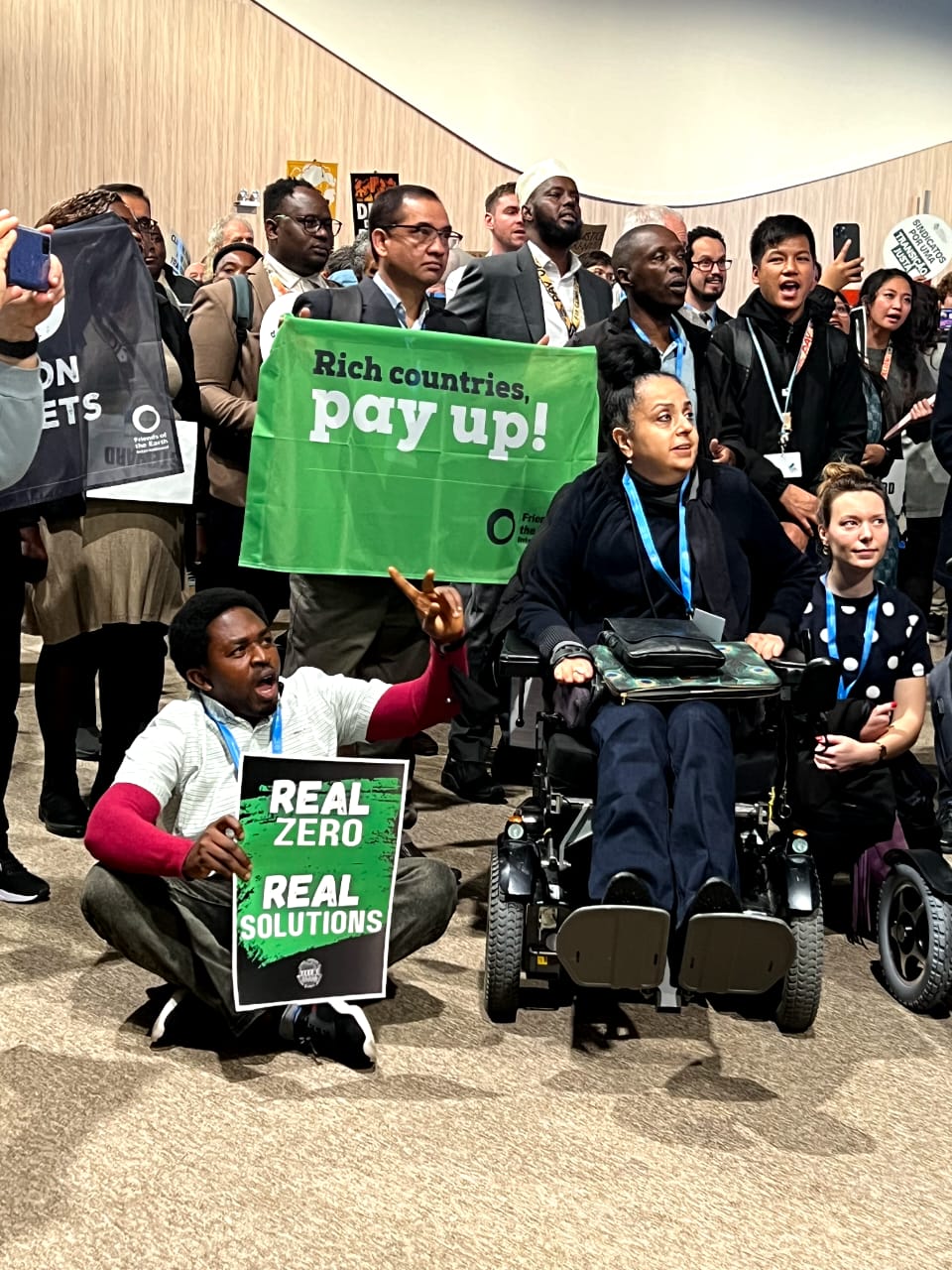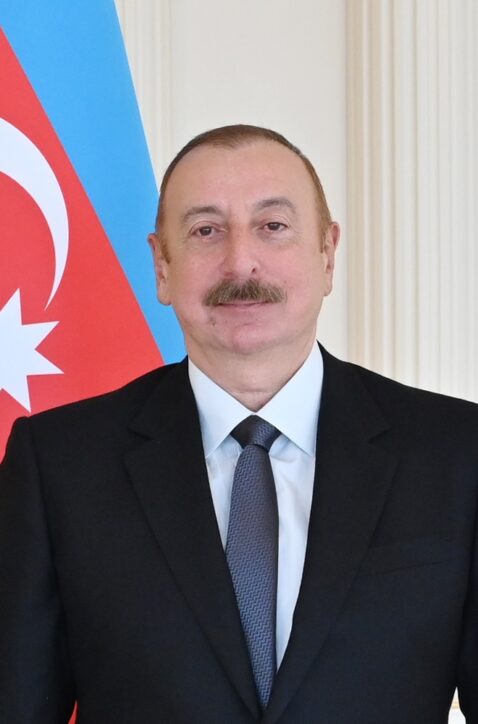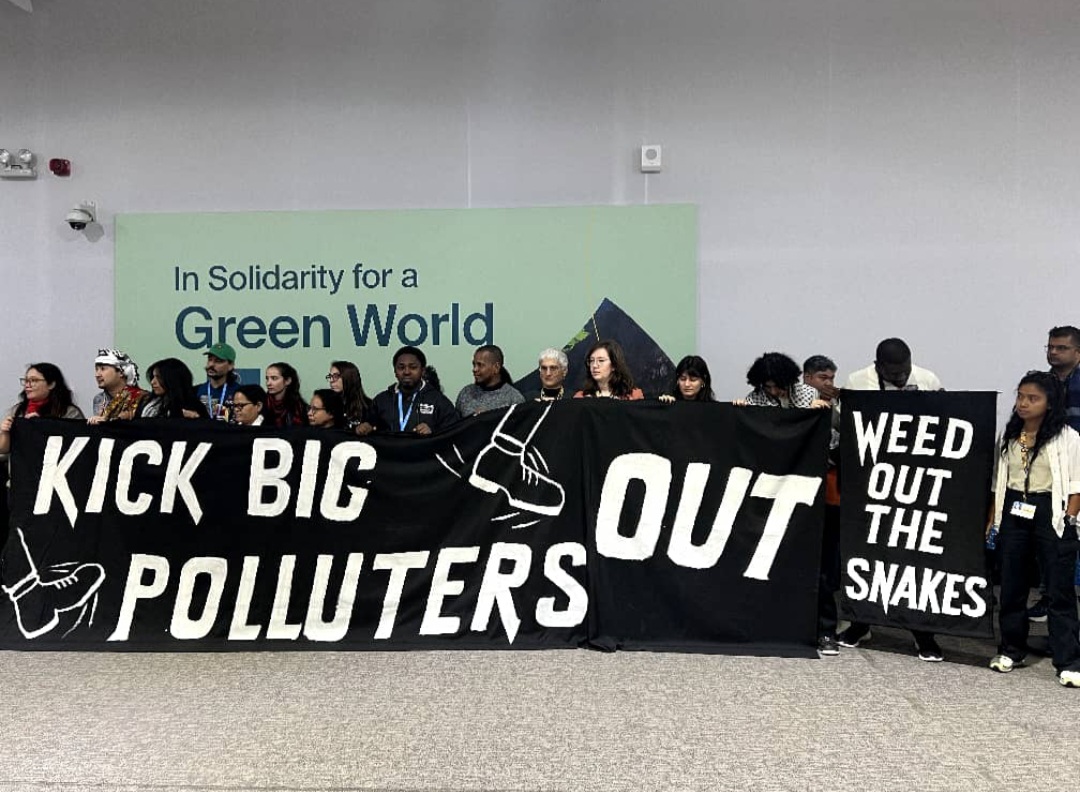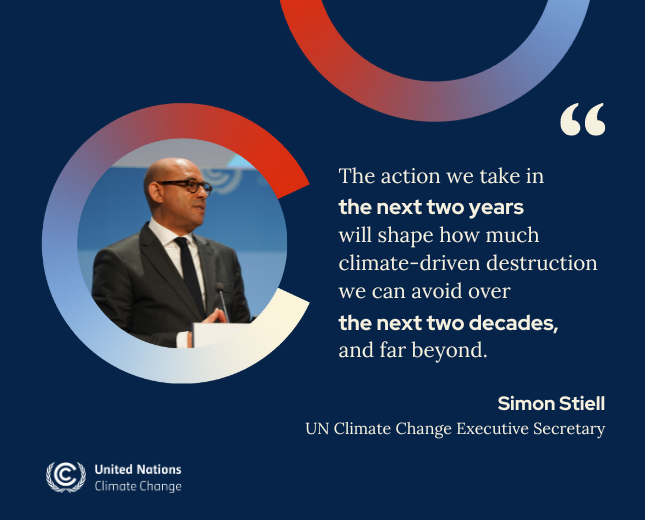At the ongoing COP29 summit in Baku, Azerbaijan, the Africa Make Big Polluters Pay (MBPP) Coalition has thrown its weight behind a demand by developing countries led by G77 and China for improved and just climate finance reparation in trillions from developed countries.
It also called for urgent technology transfer and capacity building for climate action in frontline climate crisis-impacted communities.
The Africa MBPP’s support builds on its long-standing demand for accountability from the Global North governments, corporations and other Big Polluters who have played and continued to play a significant role in exacerbating the climate crisis wreaking havoc in Global South countries, particularly Africa.
According to the United Nations, 17 out of the 20 countries most threatened by climate change are located on the continent and climate change already impacts 2 to 9 percent of their national budgets.
Africa MBPP comprises foremost environmental rights groups on the continent including Nigeria-based Corporate Accountability and Public Participation (CAPPA), Kebetkache Women Development & Resource Centre and Tell That Story, and Gender CC OF South Africa, among many others.
At the joint plenary meetings of the Baku climate talks on Monday, G77 and China Chair, Ambassador Adonia Ayebare of Uganda had emphasised the link between climate finance and climate justice, noting that the climate finance goal must be needs-based, addressing the trillions of dollars climate finance needs to meet global climate targets.United Nations
Africa MBPP agrees, adding that climate financing must also address adaptation, loss and damage, and mitigation
According to Akinbode Oluwafemi, Executive Director, Corporate Accountability and Public Participation (CAPPA) and Africa MBPP Lead Organisation, “The Africa Make Big Polluters Pay Coalition stands united with G77 and China, emphasising that climate justice requires not just promises, but substantial financial commitments in the trillions from those who have historically contributed most to the crisis. The wealth generated by fossil fuel consumption has come at a high cost to our planet and our people. It is time for the Global North to acknowledge their responsibility and invest in the future of those who are bearing the brunt of climate impacts,”
For the Executive Director, Health of Mother Earth Foundation (HOMEF). Nnimmo Bassey, “In the face of the climate crisis, it is imperative that developed nations rise to the occasion and provide the financial reparations necessary for vulnerable communities to thrive. This is not merely an act of charity; it is a moral obligation to rectify the historical injustices that have led to disproportionate suffering in the Global South. We must ensure that these funds are directed toward sustainable development and resilience-building initiatives that empower local populations”.
Africa Climate Campaign Director, Corporate Accountability, Neima Hellen, on her part, says, “Climate action must be rooted in fairness, with developed countries stepping up to support those they have historically disadvantaged. We must create a global framework that prioritises the needs of the most vulnerable and ensures that their voices are heard in the decision-making processes. This is not just about financial transactions; it is about building trust and fostering partnerships that lead to meaningful change” .
“We call on the Global North to acknowledge their role in the climate emergency and to take immediate action through equitable climate finance and technology transfer to those most affected. The time for half-measures and vague commitments has passed; we need concrete actions that translate into real benefits for communities facing the harsh realities of climate change. This includes not only funding but also the sharing of knowledge and technology that can help us adapt and mitigate the impacts of climate change,” said Kwami Kpondzo, Executive Director – Centre for Environmental Justice Togo, Africa Make Big Polluters Pay Coalition.

Hilda Nakabuye, Executive Director, Fridays For Future Uganda, agreed. She said: “As we gather at COP29, let us remember that climate finance is not a gift, but a debt owed to the nations and communities that have borne the brunt of environmental degradation. The historical emissions from developed countries have contributed significantly to the current climate crisis, and it is only just that they take responsibility for their actions. We must ensure that financial resources are allocated effectively to build resilience and foster sustainable practices in the most affected regions”.
“The call for trillions in climate finance is not just a plea for resources; it is a demand for justice, equity, and a sustainable future for all. We are advocating for a paradigm shift where financial flows are directed towards empowering marginalised communities, investing in renewable energy, and promoting sustainable agricultural practices. This is about creating a world where everyone has the opportunity to thrive, irrespective of their geographical location,” added Amb Sampson Godsent Wherdaigar, Executive Director and Founder- YUGNET Liberia National Forum on Climate & Environmental Change.
Solidarity with G77 and China
Emem Bridget Okon, Executive Director, Kebetkache Women Development & Resource Centre said that “In solidarity with G77 and China, we insist that urgent technology transfer and capacity building are essential for empowering communities at the forefront of the climate crisis. It is not enough to provide financial resources; we must also ensure that these communities have the tools, knowledge, and skills necessary to implement effective climate solutions. This means investing in education, innovation, and infrastructure that can withstand the impacts of climate change,” .
For another climate campaigner, Babawale Adeyanju, “The time for accountability is now. The Africa Make Big Polluters Pay Coalition demands that Big Polluters and the global north governments pay their fair share, ensuring that frontline communities receive the support they need to combat climate change. We cannot afford to let the interests of corporations overshadow the urgent needs of people and the planet. It is time to hold those responsible for the climate crisis accountable and ensure that they contribute to the solutions that will protect our shared future,” .
The Africa Make Big Polluters Pay Coalition says it is committed to holding polluting corporations accountable for their significant contributions to the climate crisis. Through its innovative MBPP Storytelling Platform, According to the group “we illuminate the detrimental effects of transnational corporations’ extractive practices, challenge misleading and false narratives, and advocate for sustainable alternatives. Our mission is to humanise the climate crisis and inspire collective action. We firmly believe that industries such as agribusiness and fossil fuels must face financial and criminal accountability for the environmental damage they cause.




